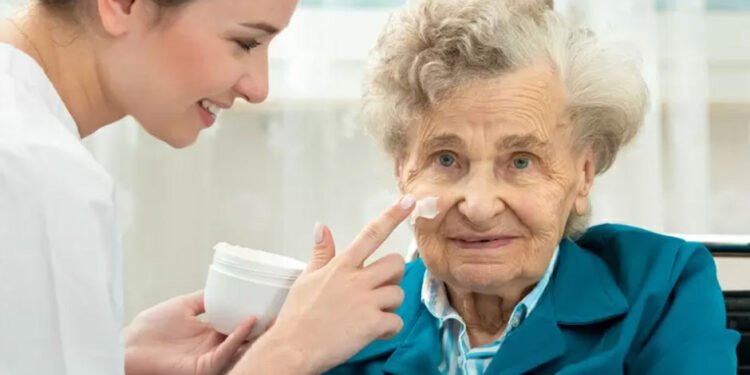Providing proper hygiene in aged care and disability care settings is fundamental to maintaining health, dignity, and comfort. Whether in hospitals, residential care facilities, or home environments, caregivers must prioritise cleanliness to prevent infections and promote overall well-being. From daily personal care to specialised sanitation equipment, ensuring high hygiene standards is a key responsibility in caregiving.
The Importance of Hygiene in Care Settings
Older adults and individuals with disabilities often have weakened immune systems, making them more susceptible to infections and skin conditions. Poor hygiene can lead to complications such as urinary tract infections (UTIs), pressure sores, and respiratory illnesses. Maintaining a structured hygiene routine helps prevent these issues while also promoting self-esteem and comfort.
Key Hygiene Essentials for Care Environments
1.Personal Hygiene and Daily Care
For individuals with limited mobility, daily hygiene tasks such as bathing, oral care, and skincare require assistance. Essential tools include:
- No-rinse cleansers and wipes – Perfect for individuals with limited mobility or restricted movement, these products allow for convenient hygiene without the need for water, making daily cleansing much easier.
- Shower chairs and commode chairs – Designed to ensure safety and comfort, these chairs provide accessible and stable bathing solutions, reducing the risk of slips and falls for individuals with mobility challenges.
- Moisturising creams and barrier creams – Specially formulated to protect fragile or sensitive skin, these creams help to prevent dryness, irritation, and inflammation, ensuring the skin stays healthy and nourished.
2.Toileting and Waste Management
Maintaining dignity and hygiene in toileting is a fundamental aspect of elderly and disability care. Proper equipment not only enhances user comfort but also reduces the risk of contamination, infections, and discomfort. Individuals with limited mobility require specialised toileting aids to ensure they can manage their needs with ease and dignity.
Key toileting solutions include:
- Hospital urine bottles – These provide a practical and hygienic solution for individuals who cannot easily access a toilet. Designed for ease of use, they allow caregivers to assist patients while maintaining cleanliness and minimising discomfort.
- Bedpans and commode chairs – Essential for those with significant mobility challenges, these options provide a safe and accessible alternative to standard toilets, ensuring independence where possible.
- Disposable and reusable incontinence pads – Available in various absorbency levels, these pads offer discreet and effective urinary incontinence management, helping users stay dry and comfortable.
- Odour-neutralising and sanitising products – Formulated to prevent bacterial growth and eliminate unpleasant odours, these products contribute to a cleaner, fresher environment for both users and caregivers.
By implementing the right toileting and waste management solutions, caregivers can significantly improve hygiene standards while maintaining the dignity and comfort of those under their care. Let me know if you’d like any further refinements!
3.Infection Control and Sanitation
Strict infection control measures help minimise the spread of bacteria and viruses in care environments. Essential hygiene practices include:
- Hand sanitisation stations – Conveniently placed in caregiving spaces to ensure easy access for both staff and visitors, encouraging regular hand hygiene to minimise the spread of germs.
- Disposable gloves and aprons – Essential for protecting caregivers and patients, these single-use items reduce the risk of cross-contamination during medical procedures or daily care activities.
- Surface disinfectants and antibacterial wipes – Designed to keep high-touch areas, such as door handles, countertops, and medical equipment, thoroughly clean and germ-free, ensuring a safer environment for everyone.
4.Bedding and Laundry Hygiene
Clean bedding and clothing are vital for comfort and infection control. Care facilities should have:
- Waterproof mattress protectors – Designed to prevent moisture buildup, these protectors shield your mattress from spills, sweat, and stains, helping to prolong its life and maintain hygiene.
- Antimicrobial bed sheets – Crafted with special materials or treatments, these sheets help reduce the risk of bacterial growth, keeping your sleeping environment fresh and healthy.
- Hot water washing systems – High-temperature washing systems are effective at killing germs, bacteria, and allergens in your linens, ensuring a cleaner and safer sleep environment.
Promoting Hygiene Best Practices in Caregiving
A structured hygiene plan benefits both caregivers and patients. Regular training ensures staff follow infection prevention protocols, while accessible hygiene products improve efficiency in caregiving tasks. By implementing high hygiene standards, caregivers can significantly enhance the quality of life for elderly and disabled individuals.












